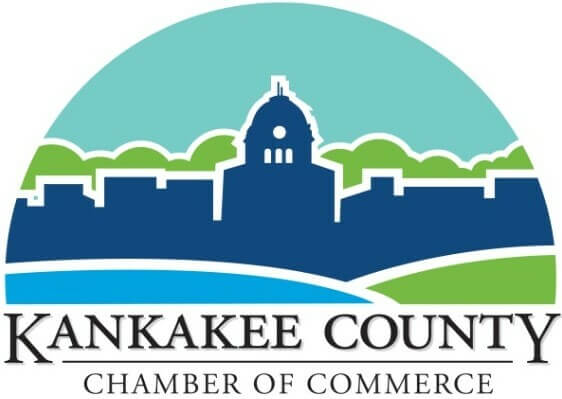Starting Smart: Legal Must-Dos for New Entrepreneurs in Kankakee County
Launching a business can feel like a thrilling leap — but without the right legal groundwork, that leap can turn into a stumble. For entrepreneurs in Kankakee County, the early stages are when compliance, structure, and foresight matter most. This guide walks through the essential legal steps every startup should take — plus how to avoid the legal pitfalls that trip up so many promising ventures.
TL;DR
Form a legal entity, register it properly, draft key contracts (especially with partners and vendors), secure necessary permits, protect intellectual property, and maintain good standing with state and federal agencies. The most common mistakes? Skipping written agreements, neglecting local zoning or licensing, and mixing personal and business finances.
Laying the Legal Foundation
Choosing your business structure isn’t just about taxes — it defines your liability and authority. Illinois entrepreneurs typically choose between:
-
Sole proprietorships (simplest, but no liability shield)
-
LLCs (limited liability, flexible management)
-
Corporations (good for fundraising and growth)
-
Partnerships (shared ownership, but needs a solid agreement)
The Illinois Secretary of State’s online business portal is your go-to for registration. You’ll also need an EIN from the IRS, which you can request here.
Local Compliance: Don’t Miss the Basics
Before you even open your doors:
-
Register your business name (DBA) if it differs from your legal name.
-
Apply for the correct zoning clearance and local permits.
-
Check state licensing requirements.
Local compliance failures are one of the fastest ways to derail a launch — especially if you plan to open a storefront or food business.
Quick Legal Setup
|
Step |
Task |
Why It Matters |
|
1 |
Register your business entity with the state |
Legally separates you from the business |
|
2 |
Obtain an EIN |
Needed for taxes, hiring, and banking |
|
3 |
Open a business bank account |
Keeps personal and business funds distinct |
|
4 |
Draft a founder’s or partnership agreement |
Prevents future disputes |
|
5 |
Verify local zoning and permits |
Ensures lawful operation |
|
6 |
Set up accounting and tax systems |
Avoids IRS or state penalties |
|
7 |
Protect IP (trademarks, copyrights) |
Safeguards your brand and products |
Common Pitfalls — and How to Dodge Them
Pitfall 1: “Handshake” partnerships
→ Solution: Always create a written operating or partnership agreement. Tools like LegalZoom, Rocket Lawyer, or LawDepot offer templates, but an attorney’s review is worth it.
Pitfall 2: Ignoring licenses
→ Solution: Check your industry’s requirements using the U.S. Small Business Administration guide.
Pitfall 3: Failing to protect intellectual property
→ Solution: File trademarks via the U.S. Patent and Trademark Office or explore provisional patent protection for inventions.
Building Contracts That Protect You
Every early-stage entrepreneur should secure three essential agreements:
-
Client or service contracts — define scope, fees, and liability.
-
Vendor agreements — specify deliverables, deadlines, and dispute procedures.
-
Employment or contractor agreements — clarify rights, pay, and confidentiality.
When in doubt, reference examples from trusted legal libraries like Nolo or FindLaw. Always tailor them to Illinois law.
Adding a Hold Harmless Clause to Your Legal Toolkit
Including a Hold Harmless Agreement in your legal checklist is a simple but powerful safeguard. Such agreements ensure one party agrees not to hold the other responsible for potential risks, reducing exposure to lawsuits and financial losses. They can protect you in vendor partnerships, public events, or even customer interactions. You can start drafting one through this free option — a solid starting point for small businesses formalizing their risk management.
FAQ: Legal Launch Basics for Illinois Entrepreneurs
Q1: Do I need a lawyer to start a small business?
Not necessarily. Many filings can be handled yourself, but hiring a lawyer ensures your contracts and structure comply with Illinois law.
Q2: What’s the difference between an LLC and a corporation?
An LLC offers flexibility and fewer formalities; corporations are better if you plan to issue stock or seek investors.
Q3: Do I need insurance before opening?
Yes. Consider general liability, workers’ compensation, and property insurance. Check rates at The Hartford or NEXT Insurance.
Q4: How often should I renew business licenses?
Most Illinois licenses renew annually — always verify with your local or state agency.
How-To: Keep Your Legal House in Order
-
Review contracts yearly
-
Track renewal dates in a shared calendar
-
Schedule quarterly check-ins with a CPA
-
Store legal documents in a secure, backed-up cloud service
-
Use the Illinois Business Portal for compliance updates
Starting a business in Kankakee County isn’t just about passion and product — it’s about building on solid legal ground. With a clear structure, written protections, and proactive compliance, you not only avoid early legal headaches but also build a foundation of credibility and trust. The best businesses don’t just grow — they grow securely.
This Hot Deal is promoted by Kankakee County Chamber of Commerce.

